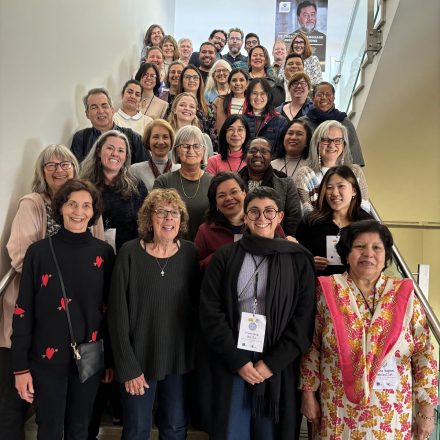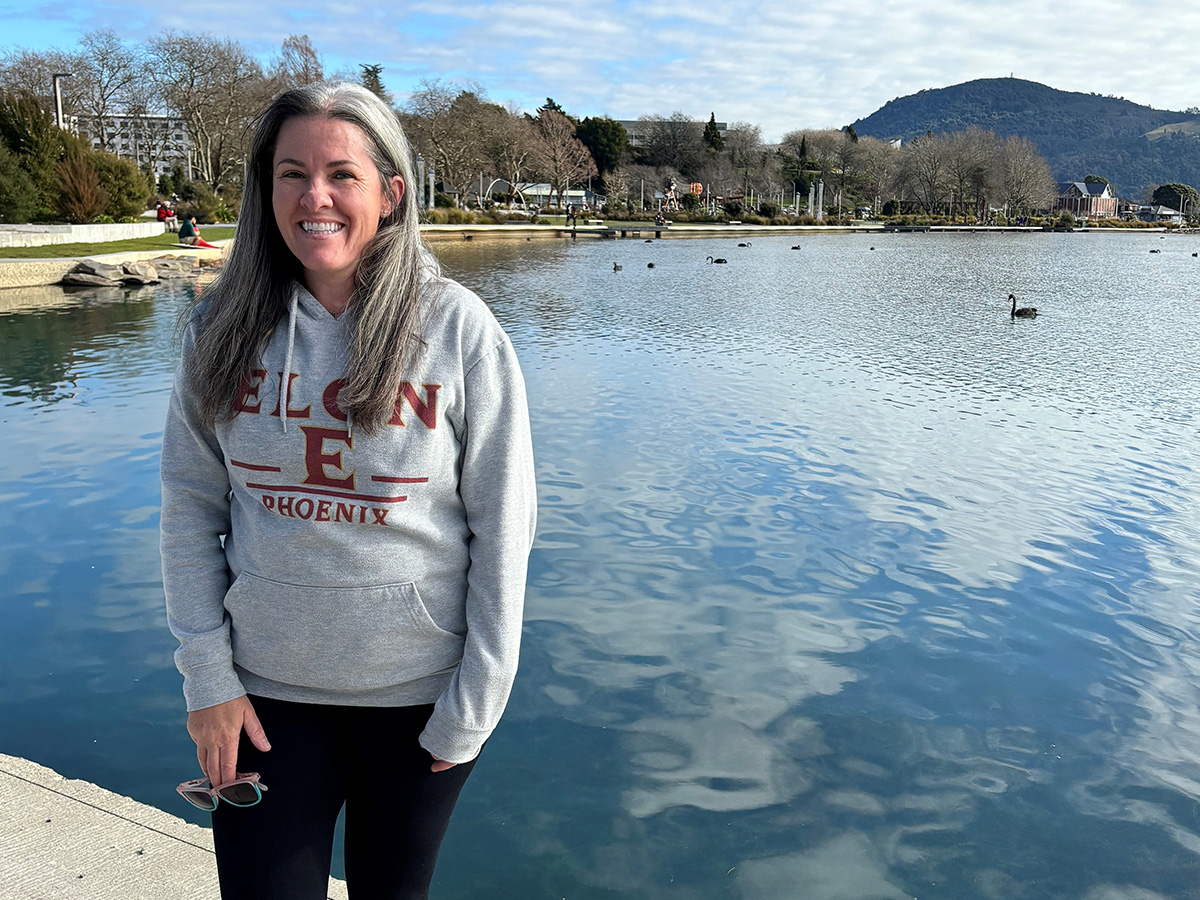Heather Barker, assistant professor of mathematics and statistics, joined a small group of 40 statistics educators at the sixth IASE roundtable at the University of Auckland in New Zealand from July 2-5, 2024.
Heather Barker, assistant professor of mathematics and statistics at Elon University, recently presented at the International Association for Statistical Education (IASE) Roundtable Conference held at the University of Auckland in New Zealand. The conference, held from July 2 to July 5, 2024, brought together only 40 to 50 participants from around the world to discuss the theme of “connecting data and people for inclusive statistics and data science education.”
This unique four-day event focused on the human-driven aspects of data creation and usage, aiming to promote inclusivity in the teaching and learning of statistics and data science. Attendees shared their passion, expertise and experiences through a mixture of papers and workshops, along with ample opportunities for in-person discussions.

Barker’s paper, titled “Integrating Social Justice into Data Investigation: A Framework for Statistical Analysis of Police-Involved Deaths,” explores the intersection of teaching mathematics for social justice principles and a data investigation process framework. The study utilized a dataset documenting police-involved deaths, demonstrating how statistical techniques can be applied to real-world data. She introduced the Social Justice Data Investigation Process framework, which highlights the interplay between statistical habits of mind, social justice teaching and the data investigation process. Preliminary insights from high school and college students who participated in this data investigation were also shared.
The IASE Roundtable Conference is distinctive in its approach, requiring presenters to share their papers with participants two months before the meeting for review. Presenters then revise their papers based on this feedback and use it to shape their presentations. After the conference, participants provide further feedback on all presentations, leading to one final round of revisions before the papers are published in the conference proceedings by the end of the year.
This participation not only highlights Barker’s dedication and expertise in the field of statistics and data science education but also underscores the university’s commitment to fostering inclusive and impactful research.
Funding for the research was made possible through a mini-grant from the Center for Advancement in Teaching and Learning.



